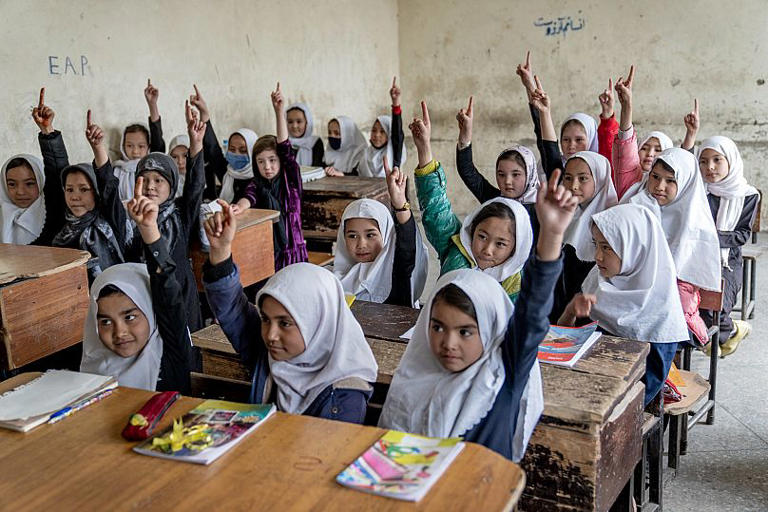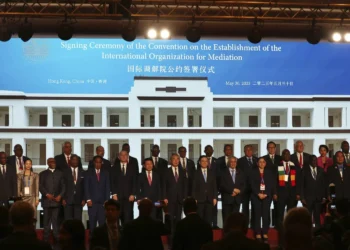Russia has suspended its ban on the Taliban, which it had designated for more than two decades as a terrorist organisation.
The Russian Supreme court’s move is being seen as a diplomatic victory for the Taliban and it paves the way for Moscow to normalise ties with the leadership of Afghanistan.
The court’s ruling, following a request by the Prosecutor General’s Office, comes after last year’s adoption of a law stipulating that the official designation as a terrorist organisation could be suspended by a court.
The Taliban was outlawed by Russia as a terrorist movement in 2003. State media said that the supreme court lifted the ban today, Thursday, April 17, 2025, with immediate effect.
In recent years, the Central Asian countries of Kazakhstan and Kyrgyzstan have also removed the Taliban from their lists of terrorist groups.
The Taliban seized power in August 2021 as US-led forces staged a chaotic withdrawal from Afghanistan after 20 years of war.
However, Russia has been gradually building ties with the movement, which Vladimir Putin said last year was now an ally in fighting terrorism.
Russia sees a need to work with the Taliban as it faces a major security threat from Islamist militant groups based in a string of countries from Afghanistan to the Middle East.
In March 2024, gunmen killed 145 people at a concert hall outside Moscow in an attack claimed by Islamic State. US officials said that they had intelligence indicating it was the Afghan branch of the group, Islamic State Khorasan (Isis-K), that was responsible.
The Taliban says it is working to wipe out the presence of IS in Afghanistan.
Western diplomats say the movement’s path towards wider international recognition is stalled until it changes course on women’s rights.
The Taliban initially promised a more moderate rule than during their first stint in power from 1996 to 2001, but started to enforce strict restrictions on women and girls soon after the takeover.
The Taliban has closed schools and universities to girls and women and placed restrictions on their movement without a male guardian.

Women are barred from most jobs and public places, including parks, baths and gyms, while girls are blocked from education beyond the sixth grade.
Earlier this year, the UN renewed its call for the Taliban to lift the bans.
The group’s decrees limiting the participation of girls and women have affected foreign aid to the country.
Measures like these have isolated the Taliban on the world stage, although their government has established diplomatic ties with countries including China and the United Arab Emirates.
The Taliban have also brought back their strict interpretation of Islamic law, including public executions.
A Reflection Of Russia’s Desire To Improve Relations
Ibraheem Bahiss, a Senior Analyst with the Crisis Group’s Asia Program, said that the Taliban’s listing as a terrorist group was a legal impediment to trade and political ties with Kabul, and its lifting reflected Moscow’s desire to improve relations. “However, beyond making it easier for individuals and businesses to engage with Afghanistan, I am not sure what other major benefit this will have,” he said.
Also, South Asia Analyst, Michael Kugelman said that the Russian move was not ground-breaking because many countries had never formally designated the Taliban as a terrorist organisation.
At the same time, he called the decision a “win-win” for bilateral relations.
For Russia, he said that it would serve as a confidence-building measure, helping pave the way for more engagement and enabling Moscow to better protect its interests in Afghanistan, particularly concerns about anti-Russia terror groups like Islamic State-Khorasan.
Meanwhile, for the Taliban, Kugelman noted that the court decision is a “legitimacy-boosting outcome they can leverage to point to international acceptance of their rule.”
READ ALSO: ORAL Must Go Beyond Politicians, Time for an Inclusive Reckoning







